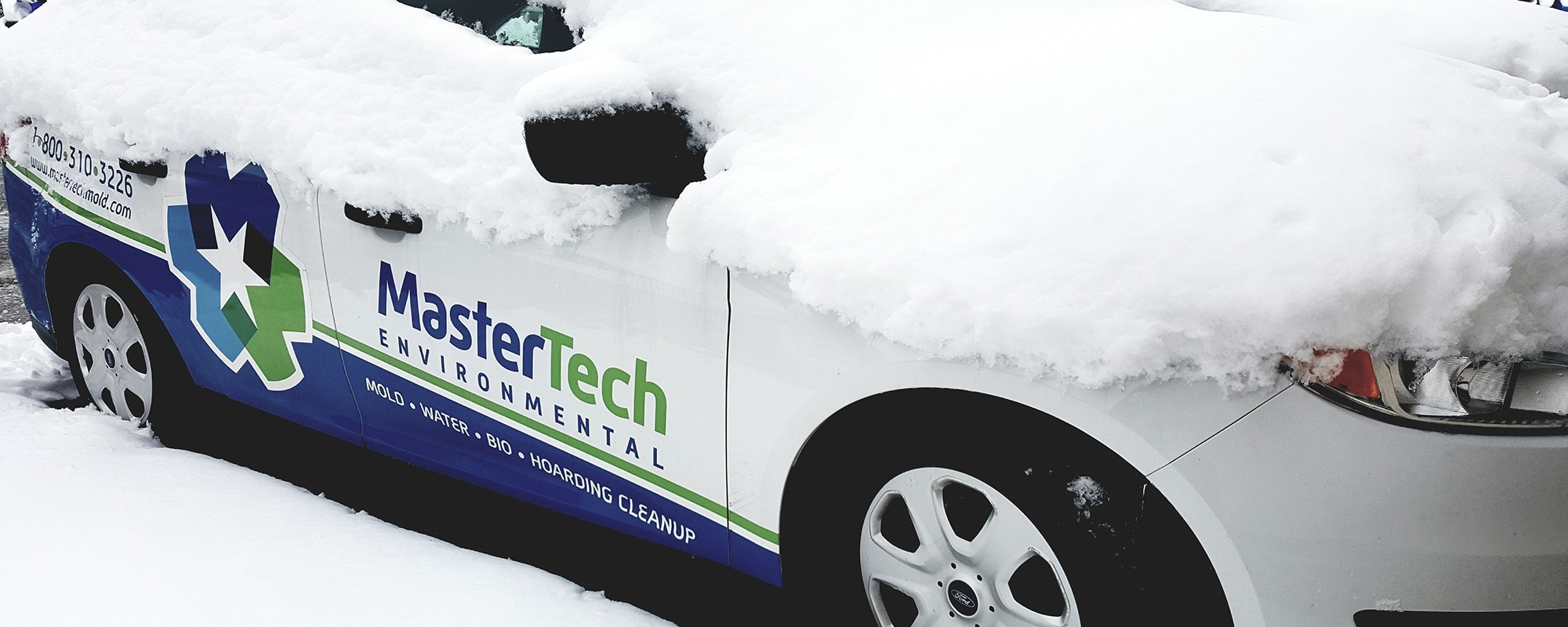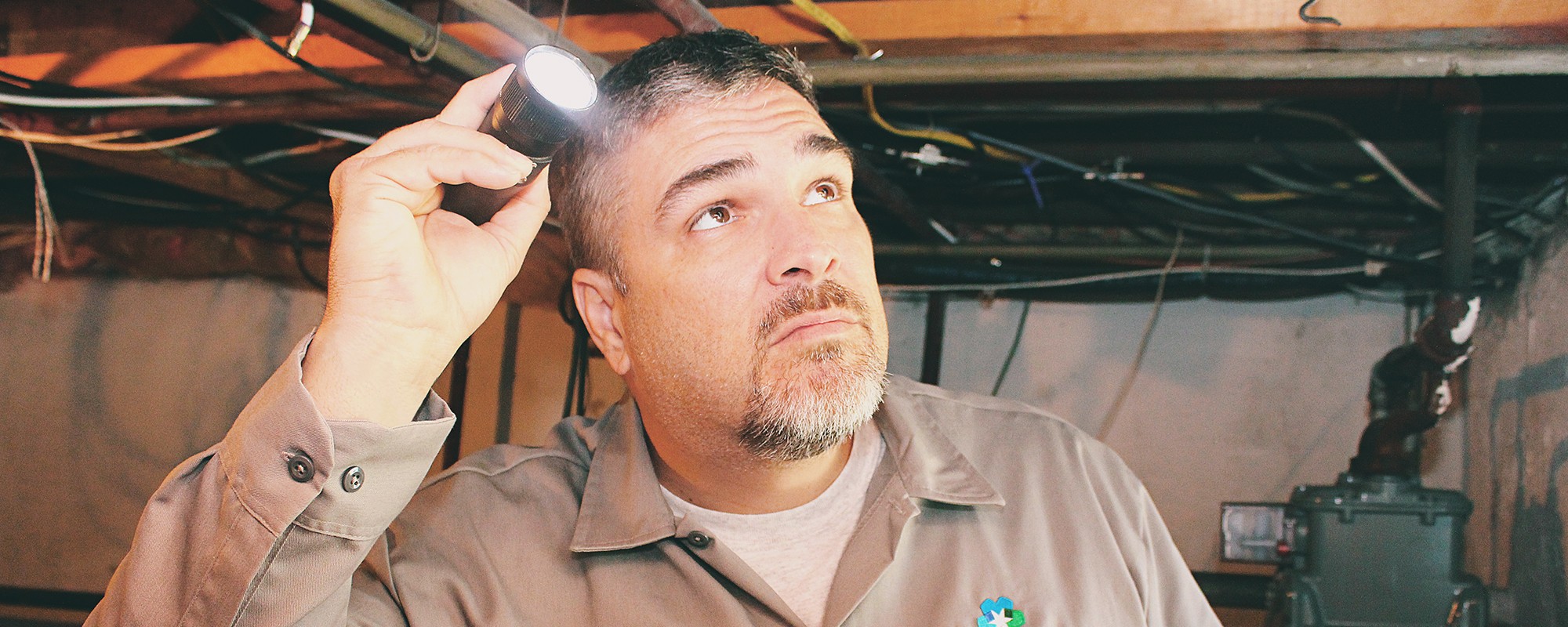South Jersey weather this time of year is notoriously fickle. The last few weeks of winter usually brings unpredictable weather that can mean large quantities of snowfall over a short period of time, with quickly rising temperatures in the days to follow. Heavy and rapidly accumulating snowfall can mean serious damage to your New Jersey home when the snow begins to melt.
For South Jersey homeowners, the first day of spring meant facing the fourth Nor’easter to the hit the Northeast in the month of March. Storm Toby hit the NJ area with a mix of winter precipitation, from heavy snow fall to icy rain and aggressive winds. As the sun begins to sneak out from behind the clouds and the temperatures begin to rise, the snow is already beginning to melt. Melting snow can mean rapid water accumulation. If homeowners are not careful, rapid water accumulation from snow melt can mean serious property damage.
New Jersey Property Damage Caused by Snow Melt
Water accumulation from melting snow and ice is often overlooked. As we begin to thaw out from recent snow storms, your New Jersey home could be vulnerable to water damage and various water related problems.
Preventing water damage is an important component in protecting your South Jersey home following recent storms. Even snow accumulation around the foundation of the home can be a potential risk for water damage. Additionally, frozen soil can prevent melting snow and ice runoff from absorbing into the ground, causing water to pool and potentially enter the structure of the home. Here are some tips to prevent water damage as we begin to thaw.
Tips to Keep your Home Safe from Melting Snow
Snow Removal- Remove the snow from the perimeter of your home. Snow accumulation near your foundation, windows, and doors can leak into your home once it starts to melt.
- Shovel the snow a few feet away from your home
- Clear all snow from areas around you windows, doorways and other opennings
- Shovel any decks, driveways or patios that slope towards your home
- If it is safe to do so, try to clear some of the snow off your roof with a snow rake. By removing some of the snow off the roof, you can reduce the amount of runoff from your roof. DO NOT attempt to clear your roof of snow in unsafe conditions.
Gutters & Downspouts- Keep your gutters and downspouts free of obstructions, like leaves and other debris, to allow a clear path for water runoff as the snow begins to melt. Obstructed gutters and downspouts cannot properly drain water away from your home.
- Water build up in your gutters can cause water damage to your roof.
- Improper drainage at your downspouts can cause water to collect around your foundation, lead to seepage and cause foundation damage.
- Keeping gutters clear will also prevent ice dams from occurring if runoff re-freezes.
Drainage- Manage your drainage systems, conduct regular maintenance checks of your drains and make sure all drains are free of obstruction.
- Test your sump pump and your sump pump discharge pipe before the snow starts to melt to ensure it’s in working order. If water does get into your basement, you want to be sure it is taken care of quickly.
- Storm drains and catch basins can often get clogged with snow — if you can do so safely, clearing snow from these areas can help keep water away from your home.
- Always make sure that water drains away from your South Jersey home. Pay attention to your landscape and areas of your property that slope towards the home. If the landscaping around your property is directing water towards your home, you should take action to divert water away from your home.
Seal Cracks- South Jersey homeowners should conduct regular foundation wall checks (interior and exterior). If you detect any gaps, cracks or signs of damage, be sure to address them right away.
- Water can infiltrate even the smallest opening, so make sure that your home’s foundation and walls are properly sealed.
- When frozen precipitation finds its way into gaps and cracks in your foundation, it can expand and contract as it freezes and melts — which of course leads to foundation damage.
- NJ homeowners should make it a habit to regularly assess the foundation wall for signs of foundation damage. Early detection and action can prevent extensive, costly repair in the future.
Attic Insulation- Attics need to be properly insulated to regulate appropriate temperatures all year round and maintain moisture control.
- Proper insulation will keep temperatures in your attic above freezing. If there is snow or ice on your roof, this will help any accumulated snow to melt.
- At the same time, proper attic insulation will keep your attic from getting too warm too quickly. This will minimize the risk of flooding that results from rapidly melting snow.
Safety- No matter what you do, always operate with safety in mind. Avoid putting yourself in a dangerous or unsafe situation.
- A few of these tips include getting up on your roof, sometimes when that roof is covered with winter precipitation. Don’t get on the roof if there’s any chance of slipping and falling, and make sure you’re always taking all possible precautions.
- Contact the professionals for help. Professional inspectors have the necessary safety equipment and experience to properly navigate a dangerous situation.
South Jersey Water Damage from Melting Snow & Ice
If rapidly melting snow has led to water intrusion in your New Jersey home, you should contact a water damage restoration professional in NJ to help. If water from melting snow or ice gets into your home, it needs to be addressed right away to prevent further damage and costlier repairs.





